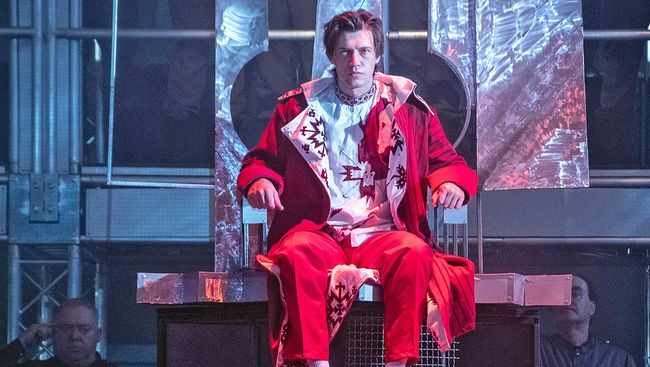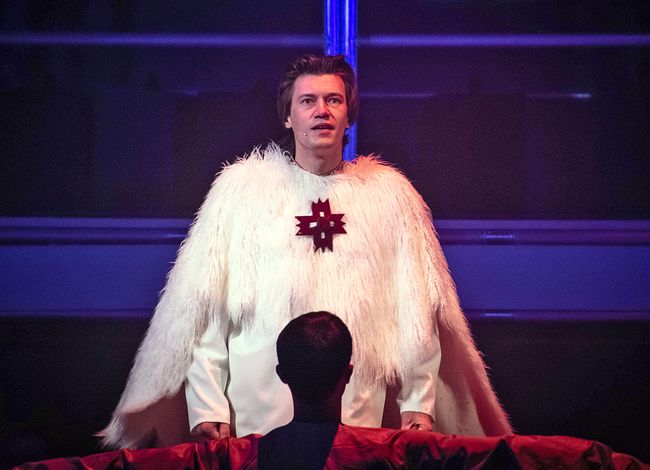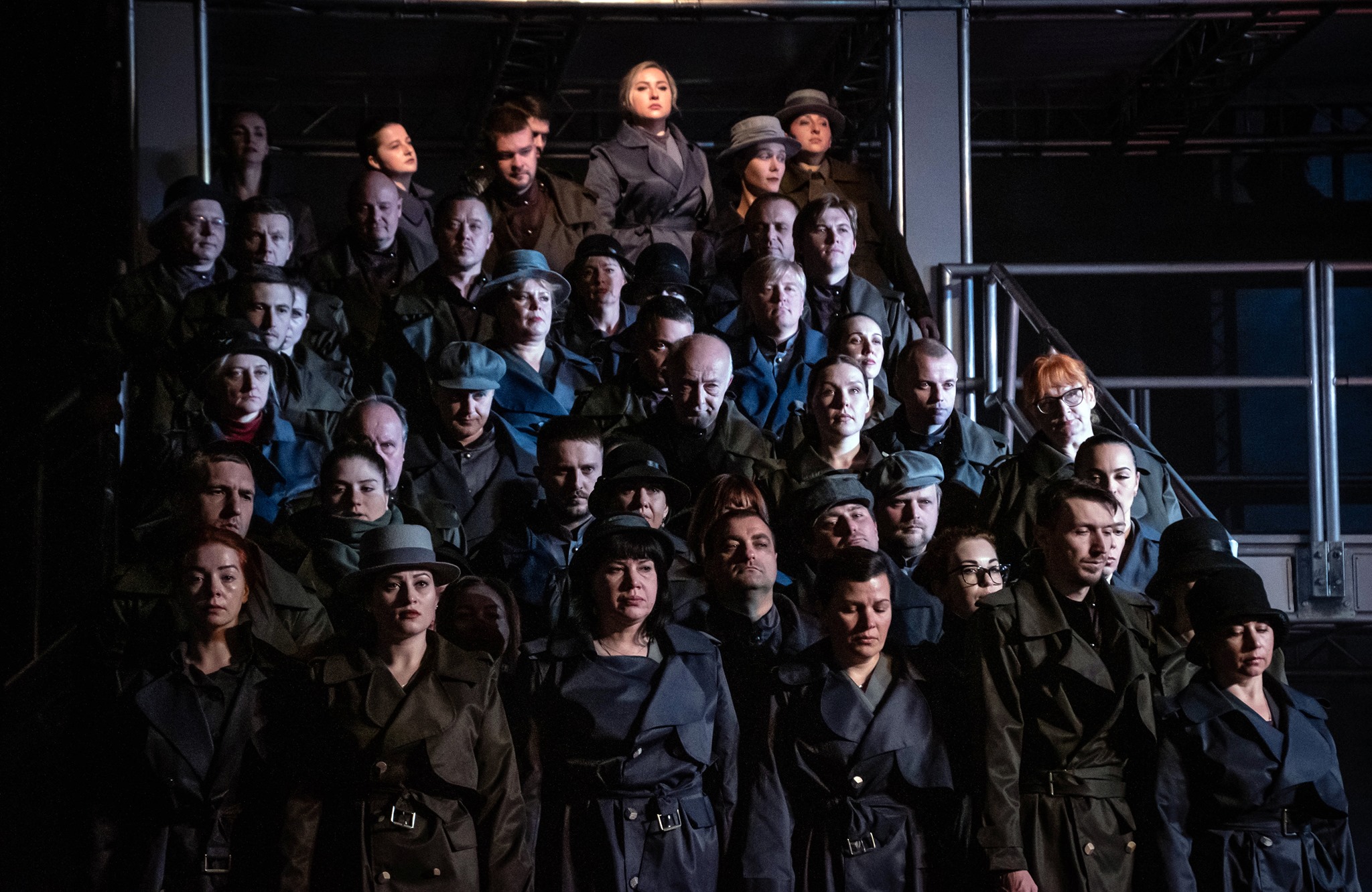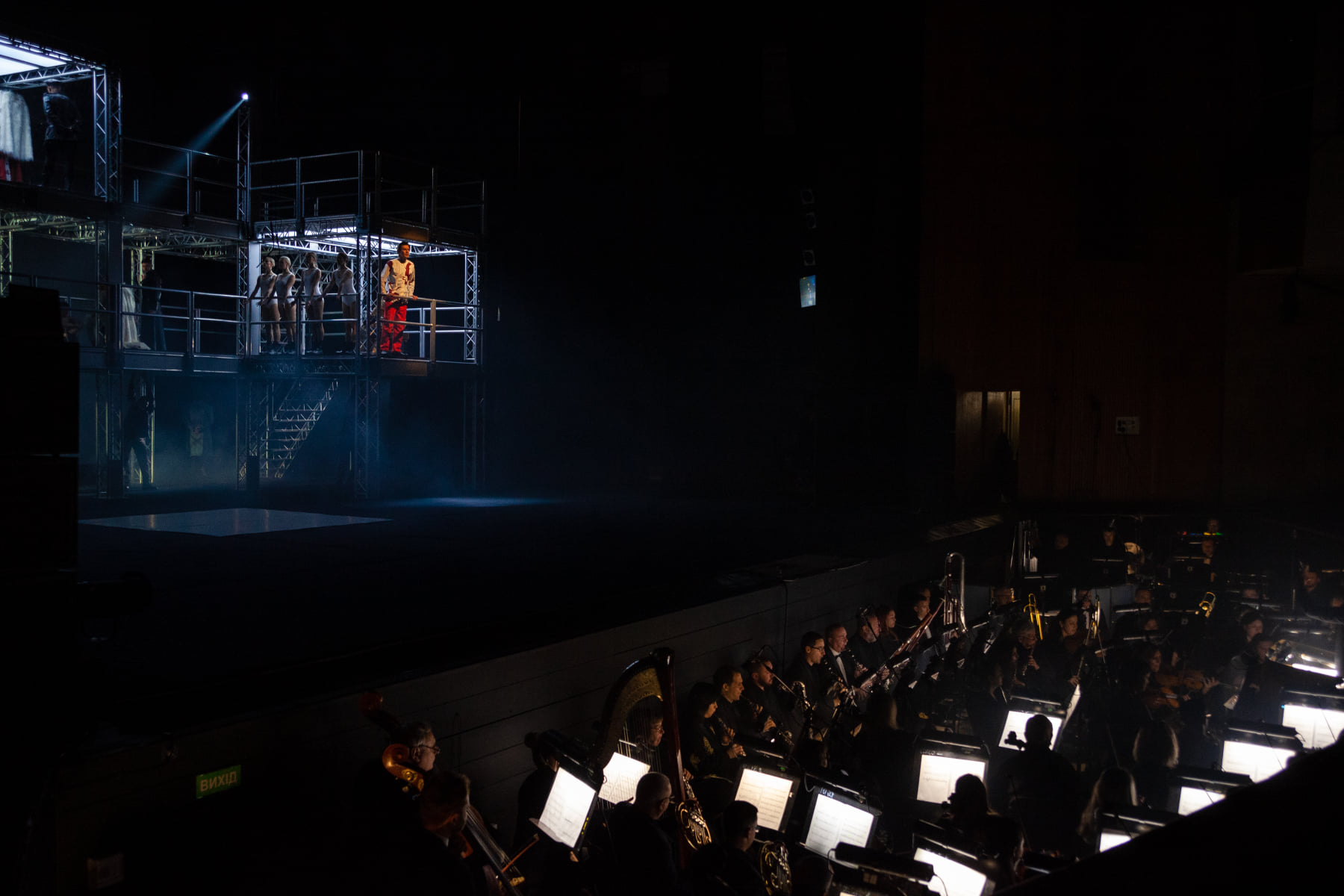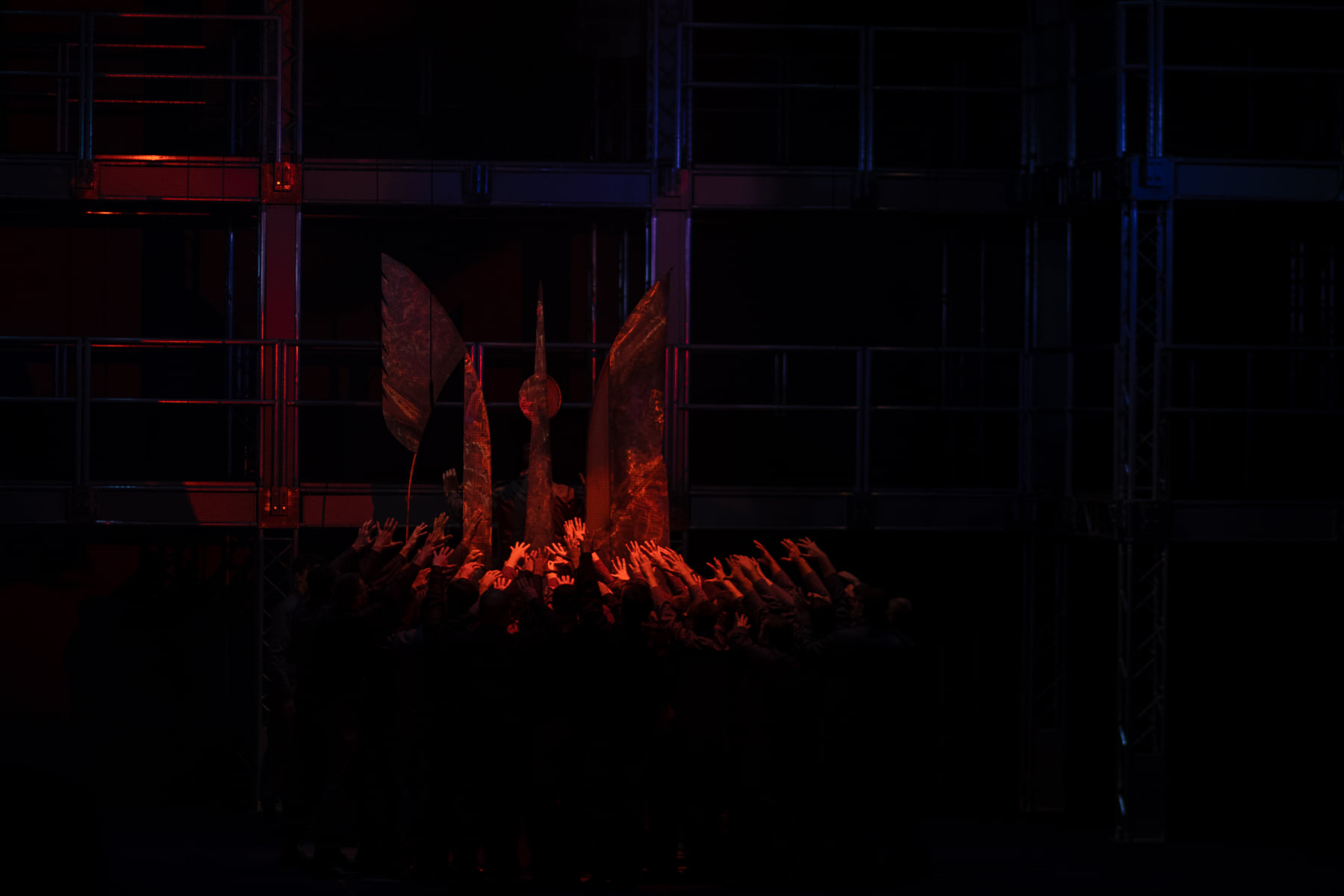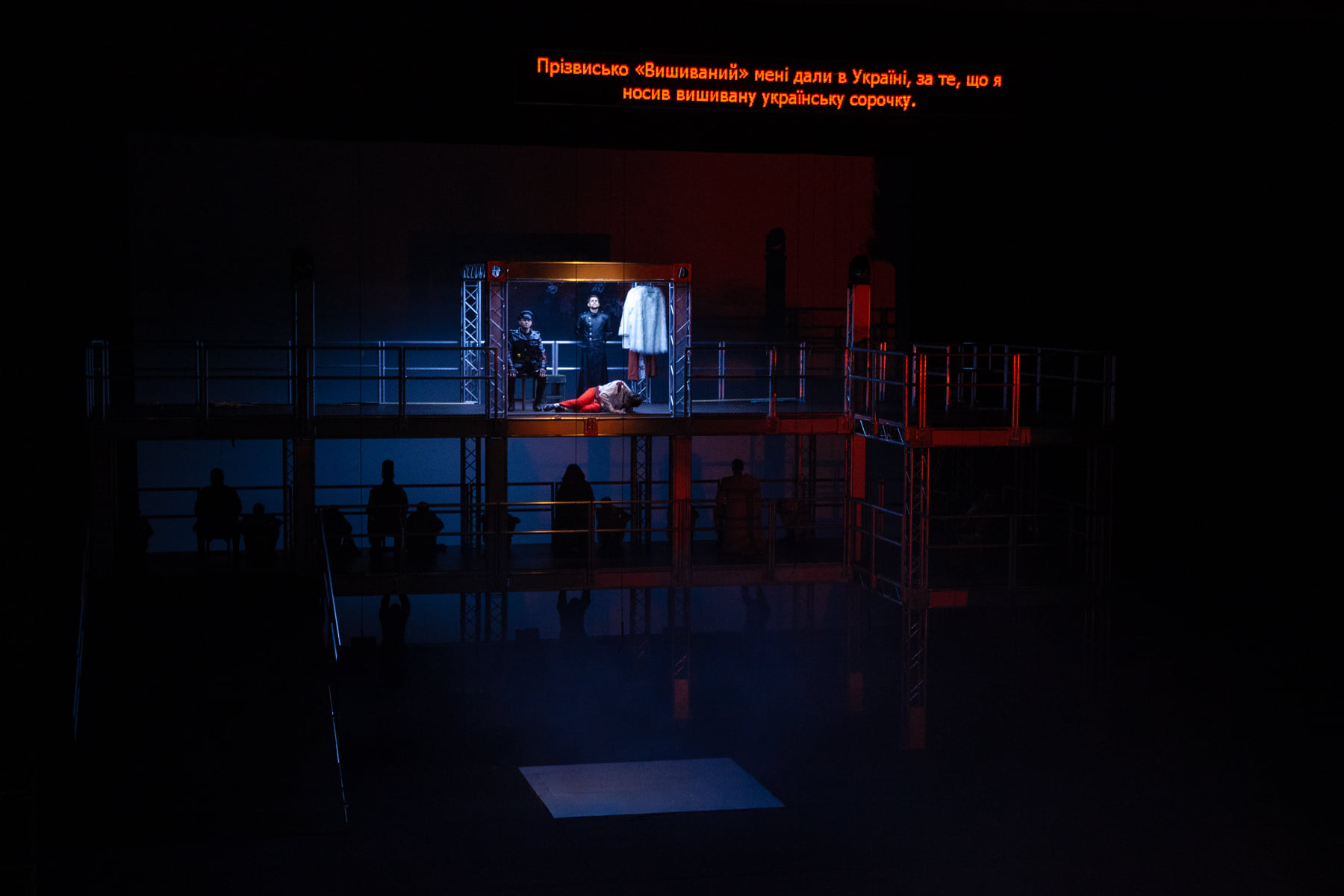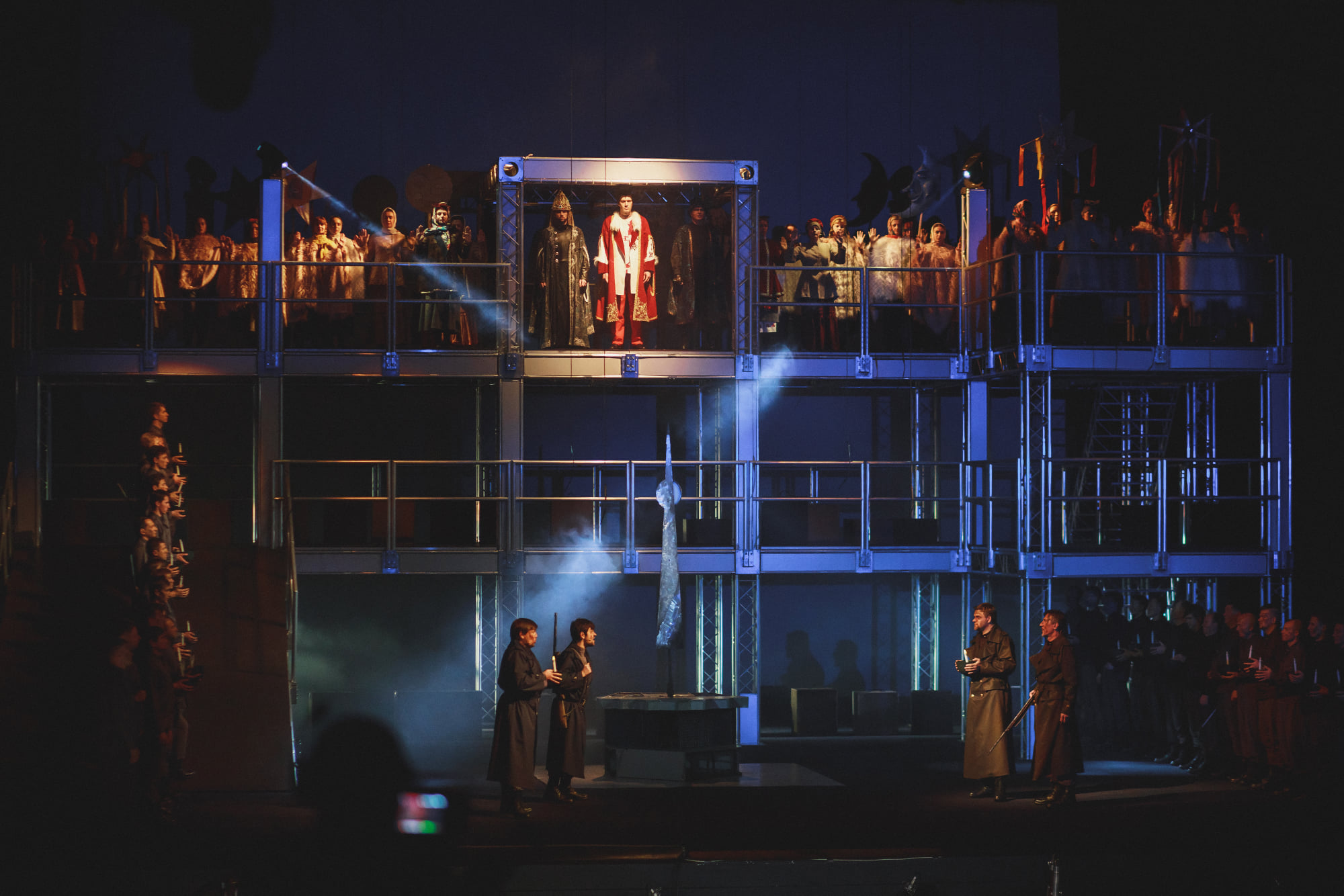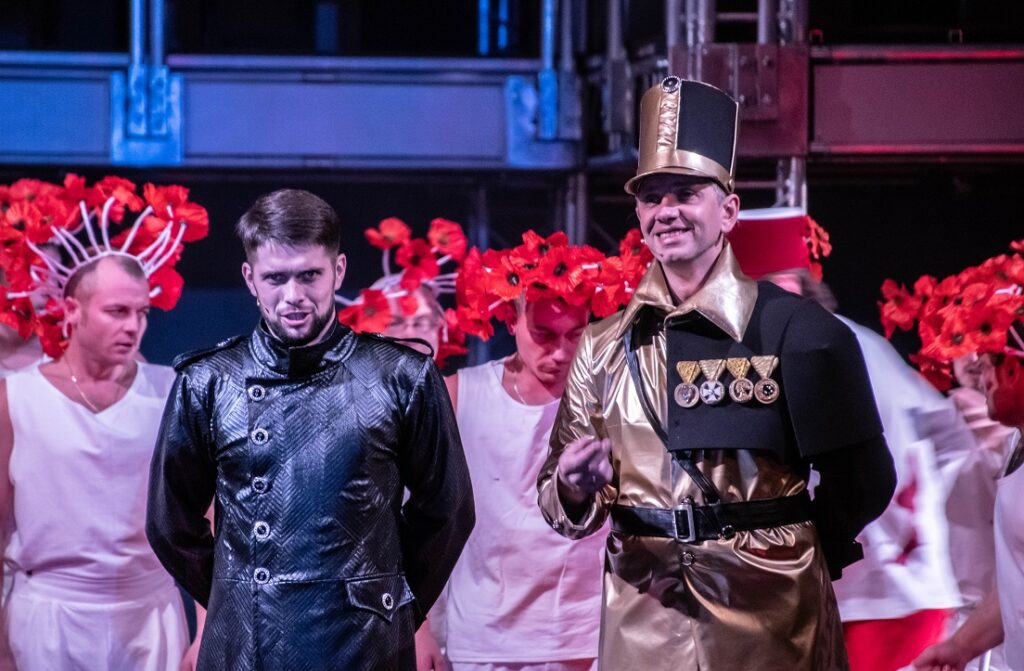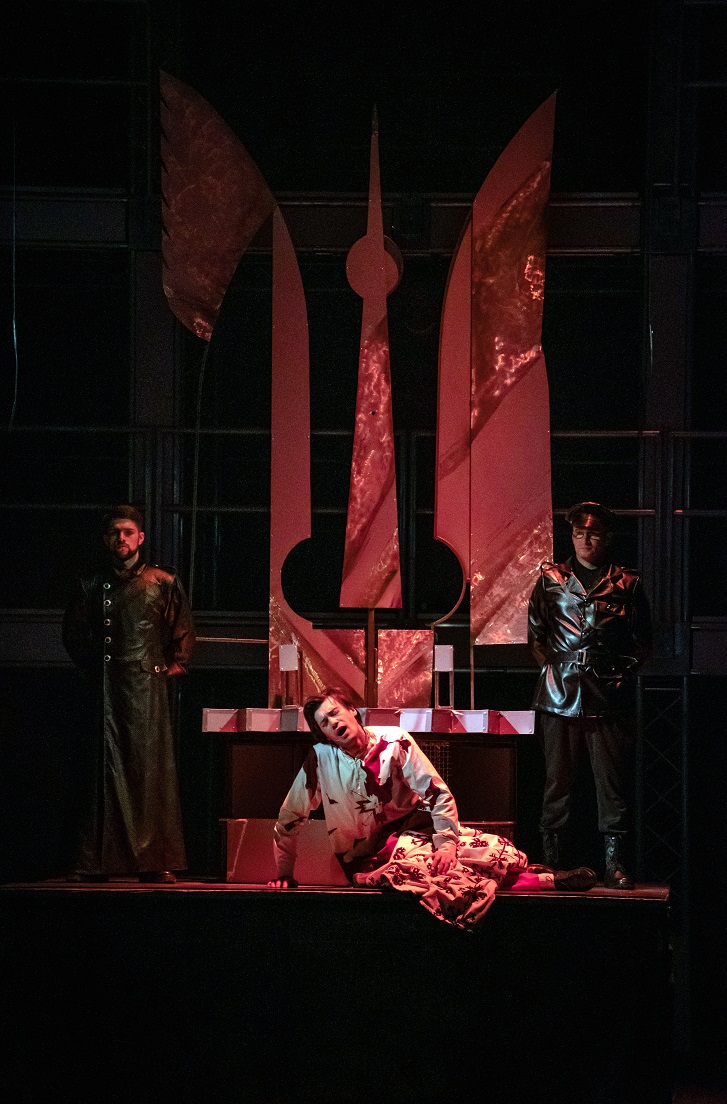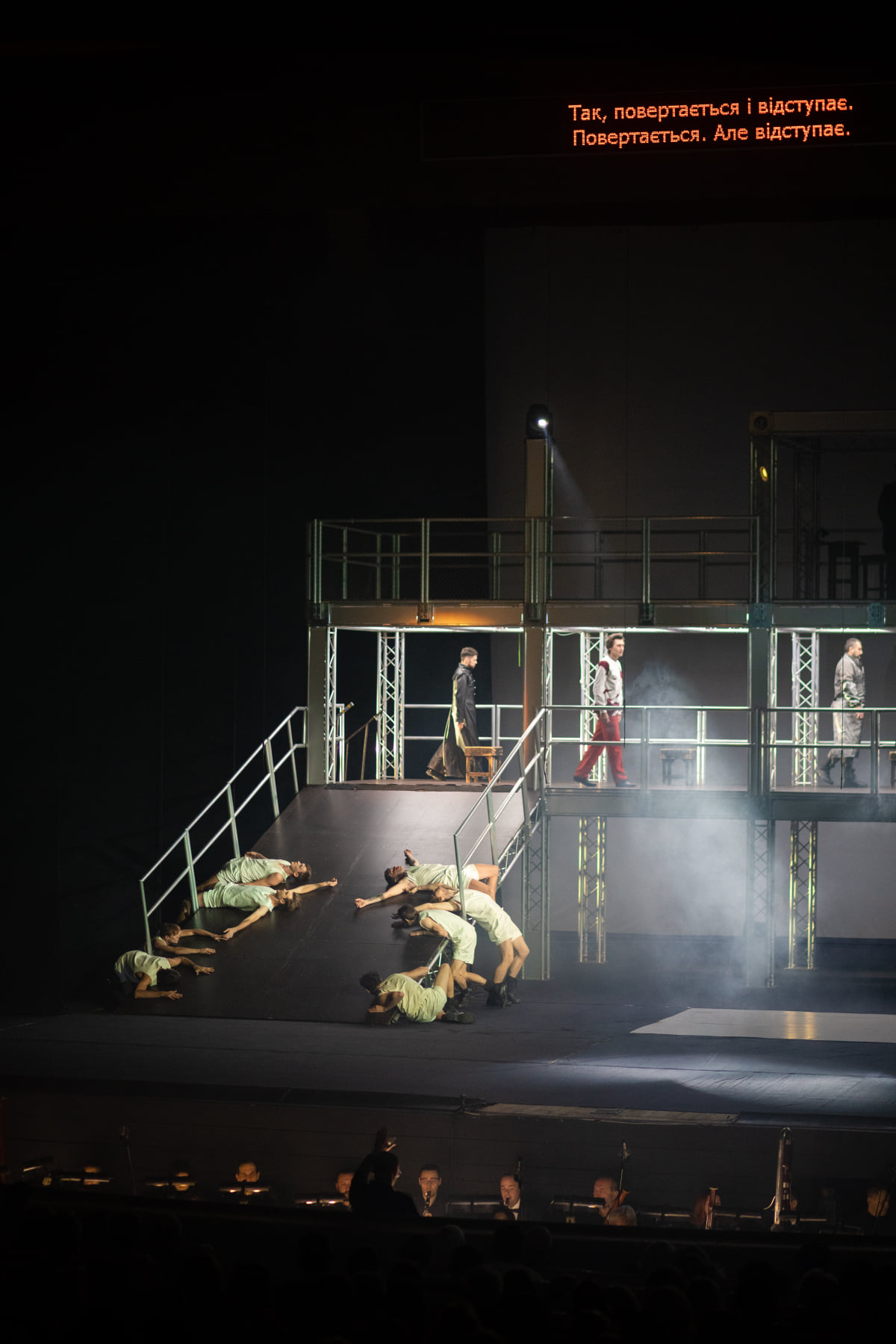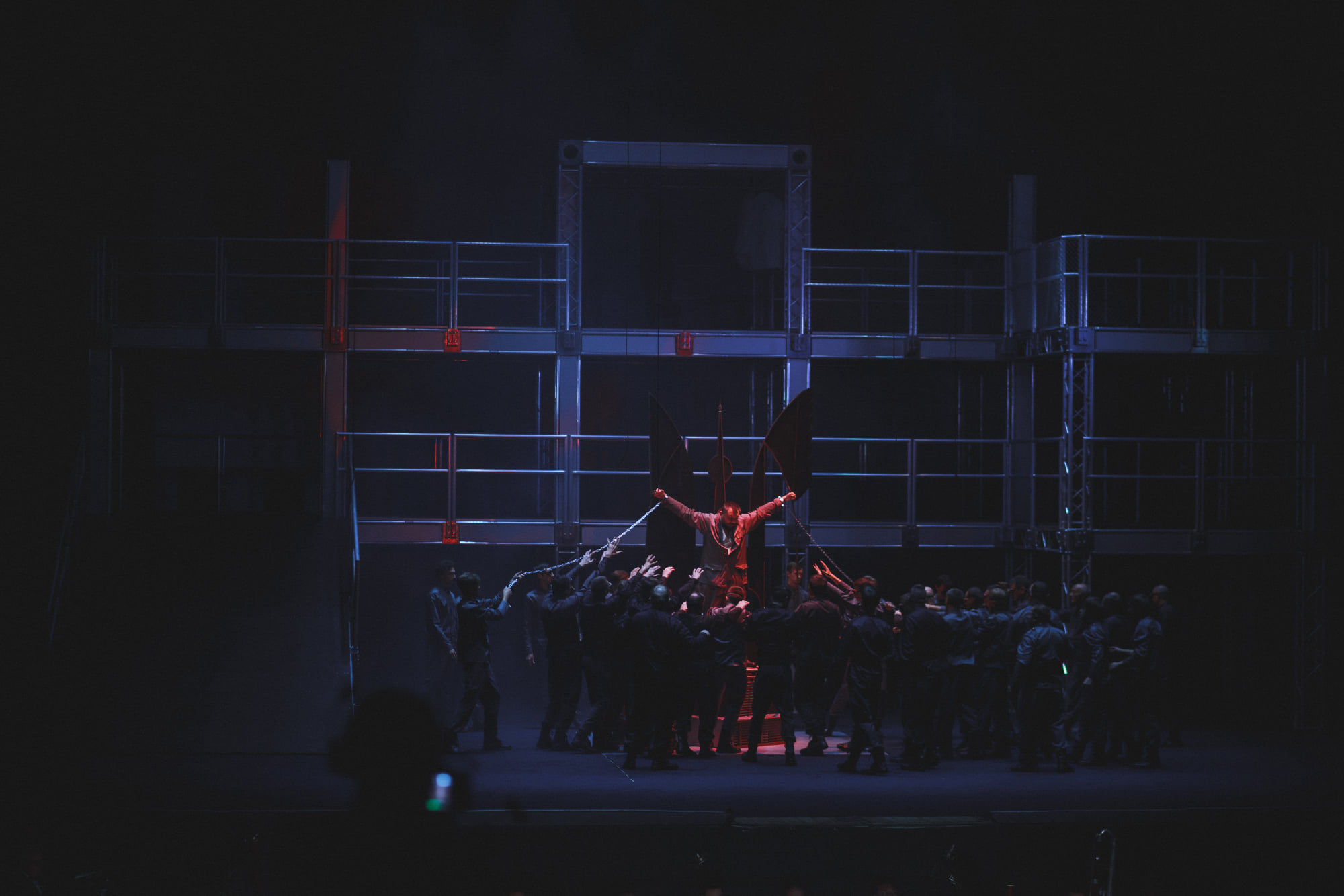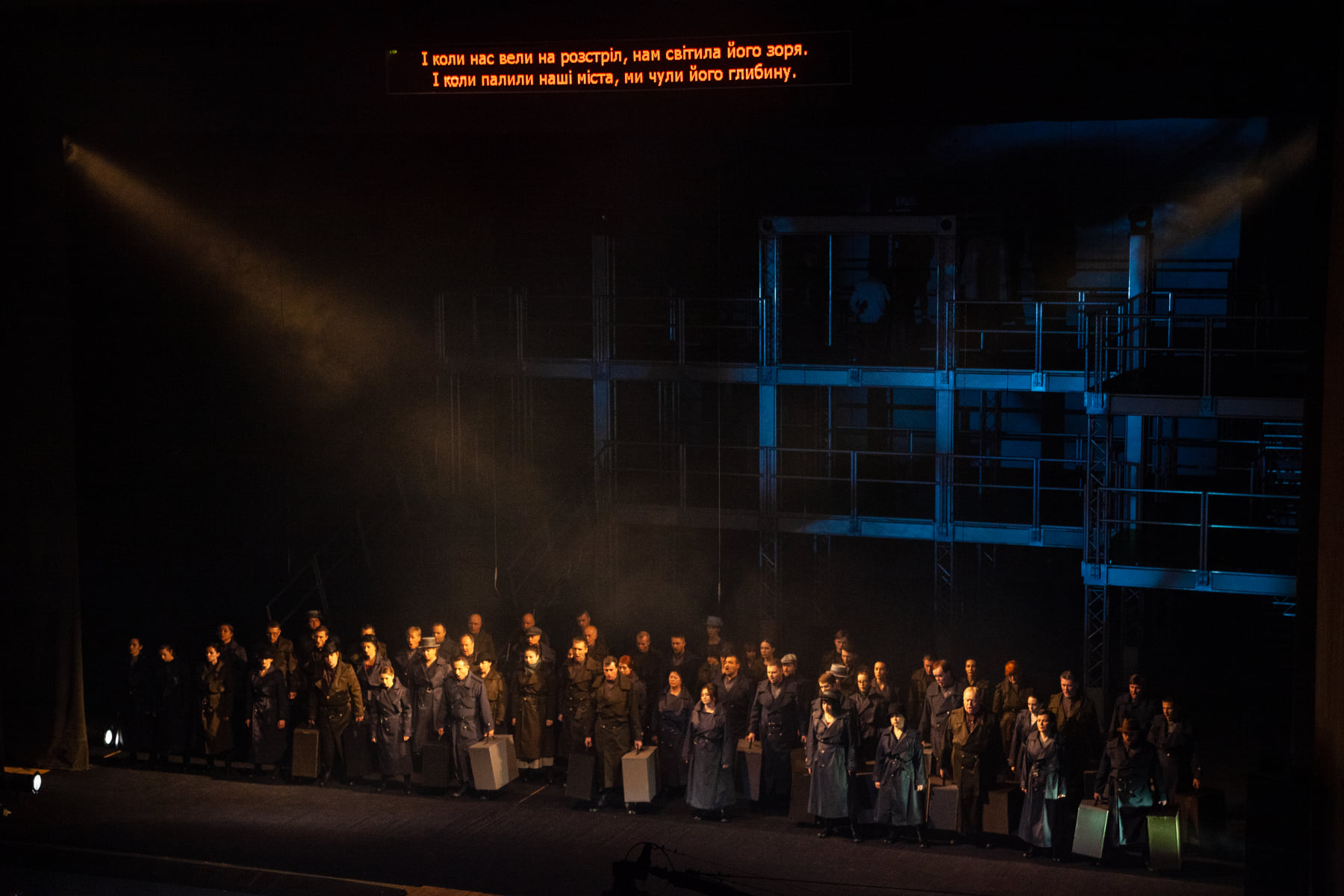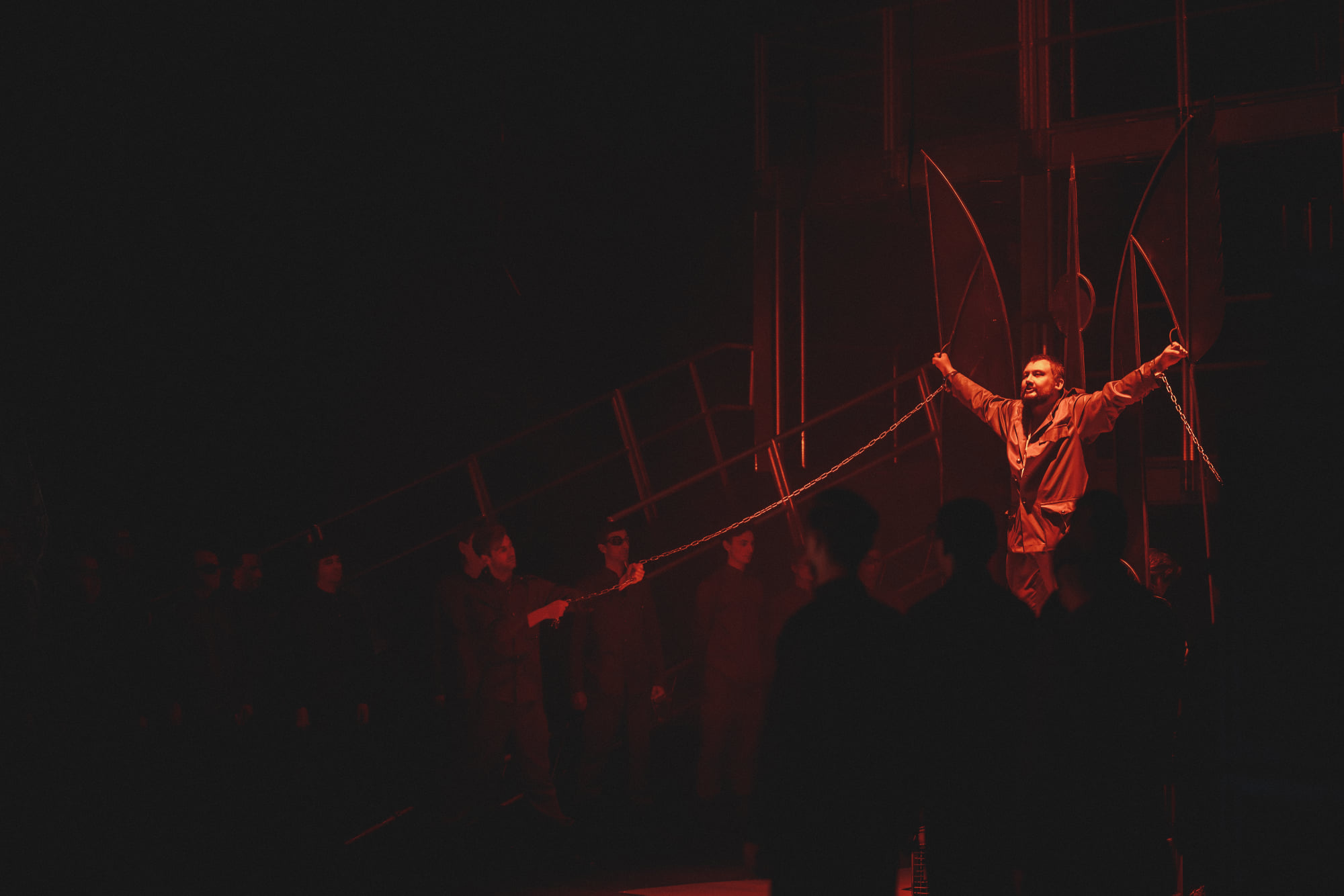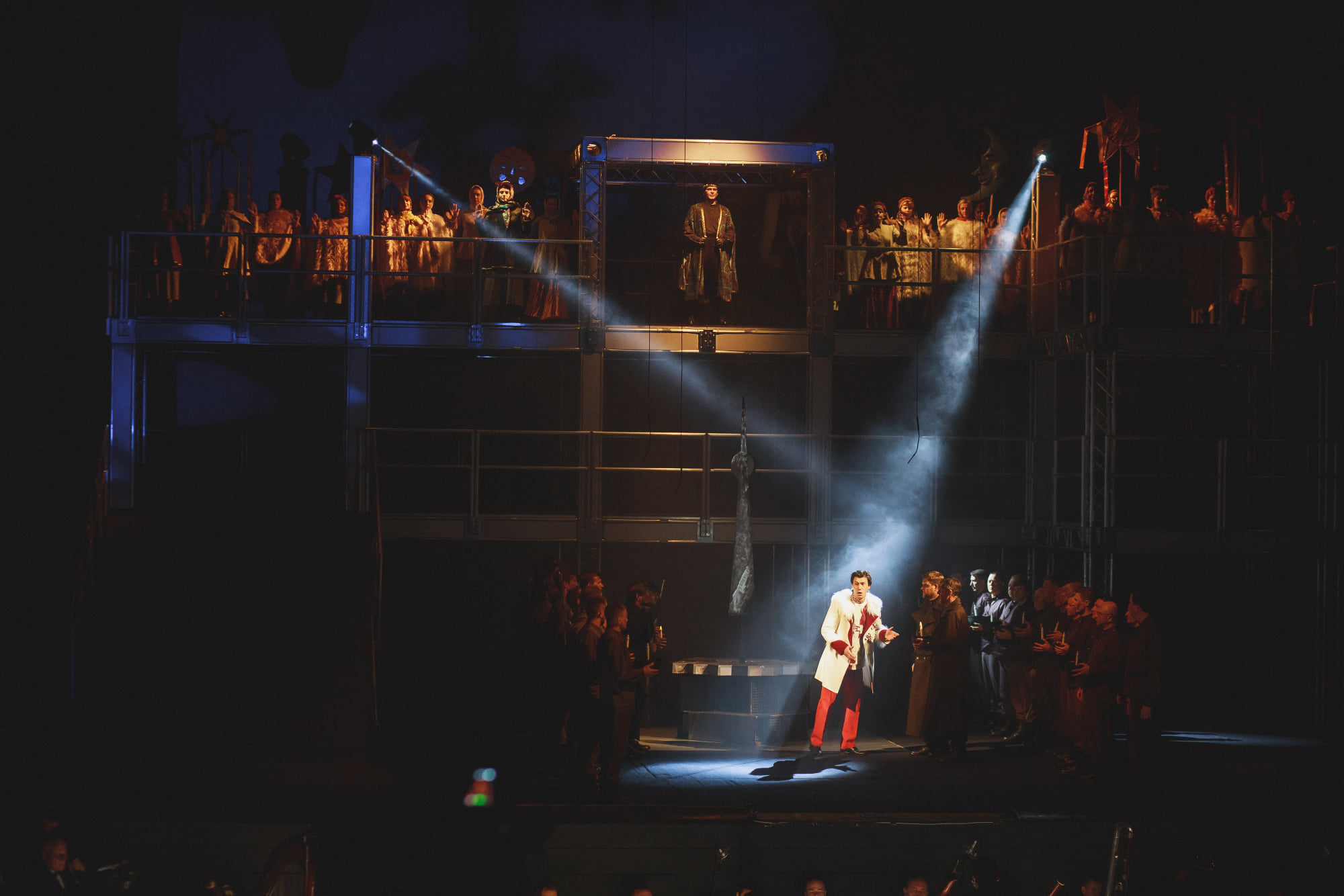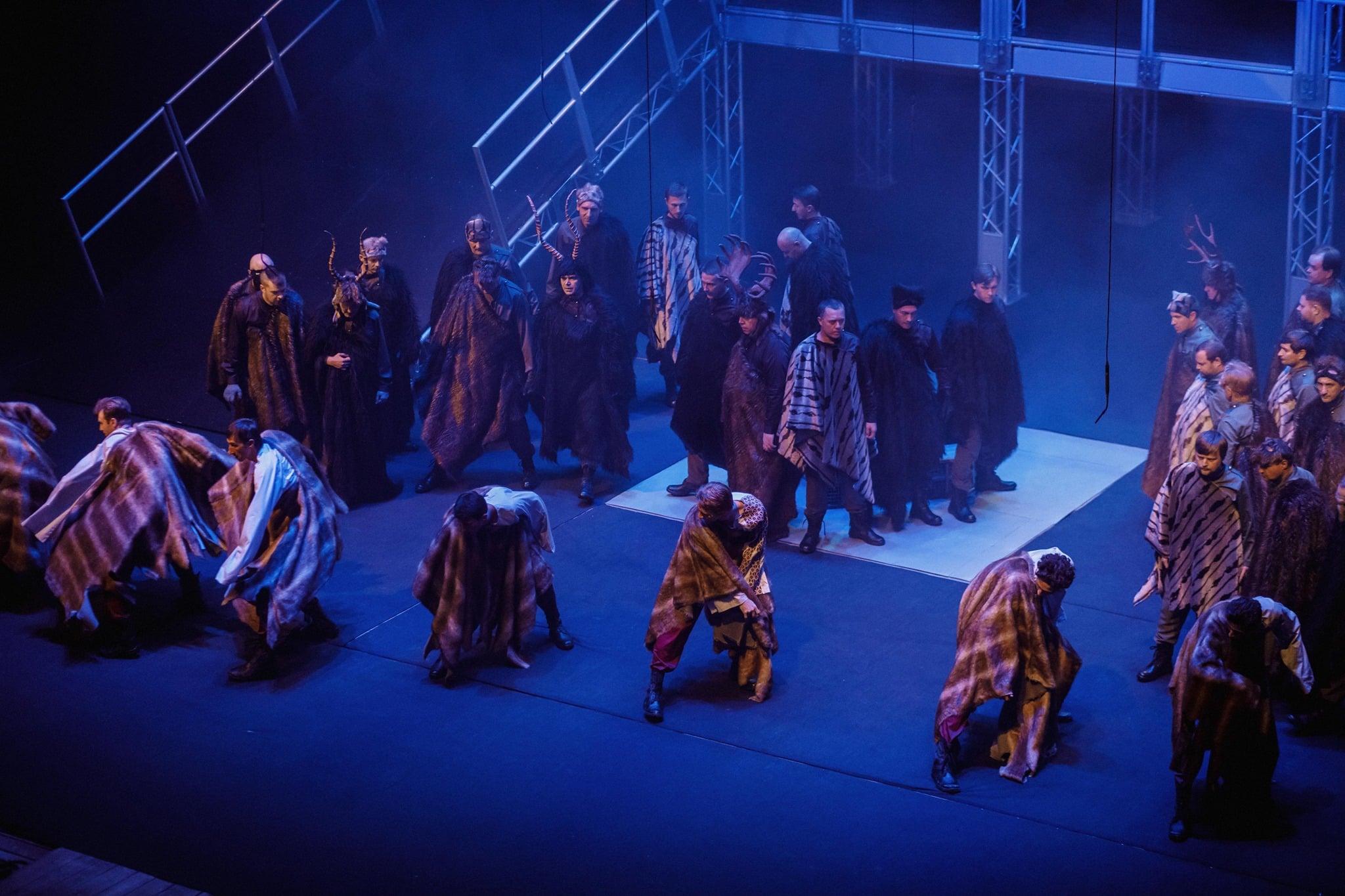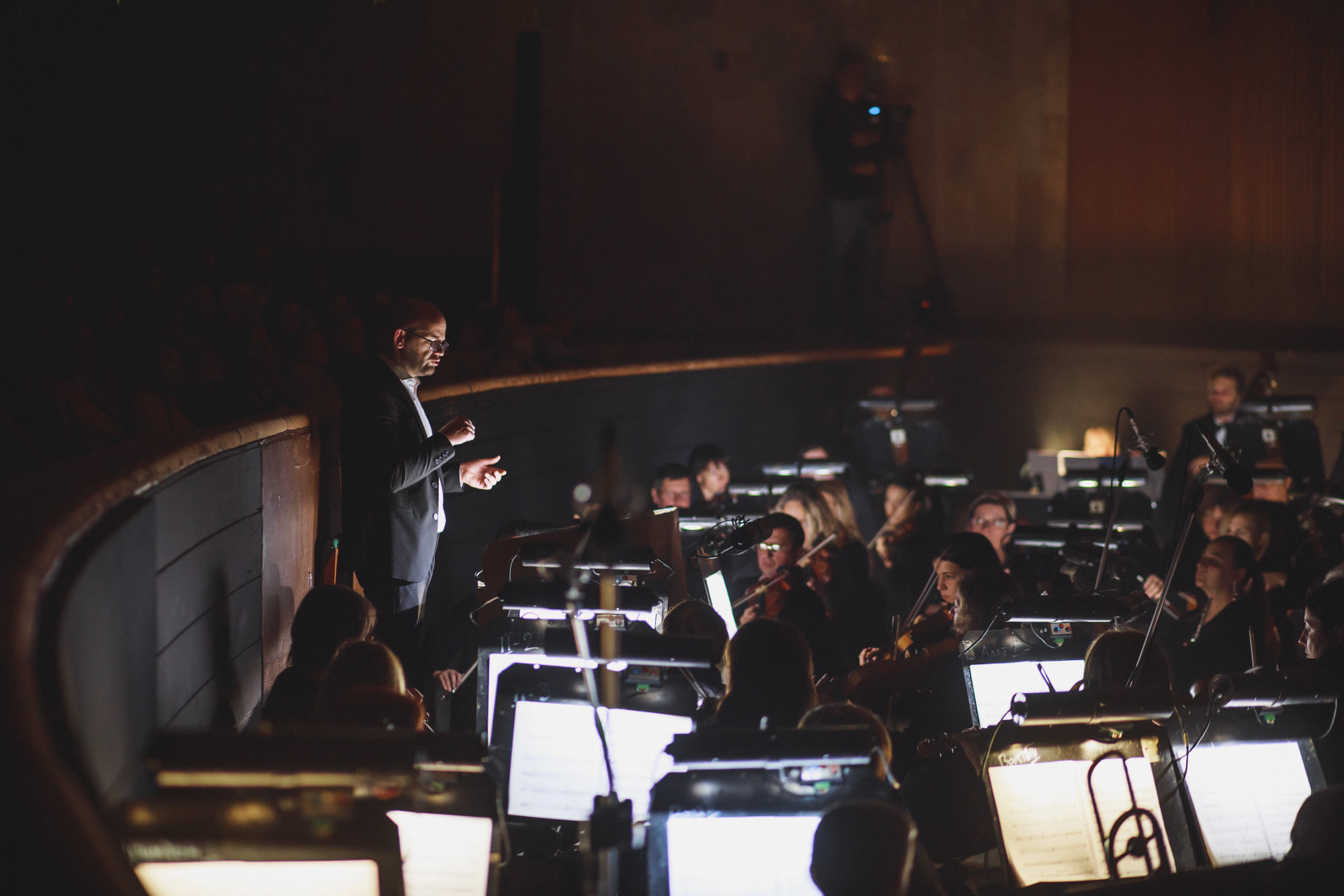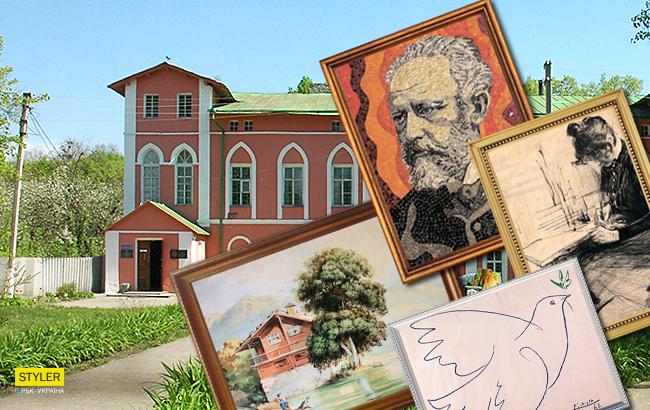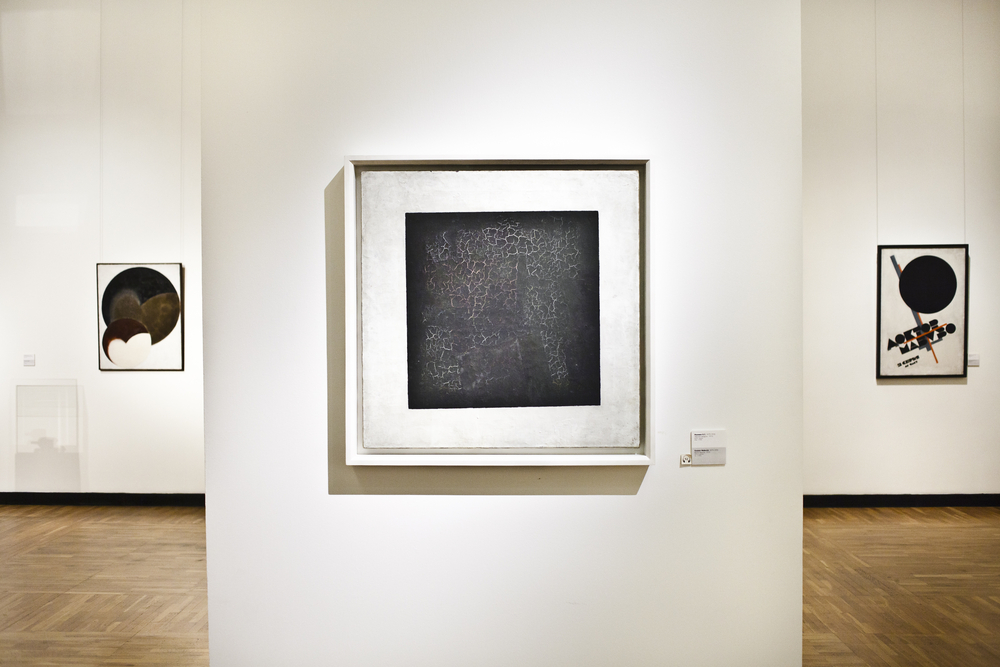Vasyl Vyshyvany fell in love with Ukraine, learned the Ukrainian language, chose a new name for himself, and fought long and hard for the independence of his adopted country.
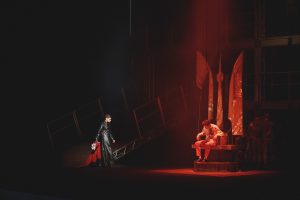
On October 1 and 2, 2021, Kharkiv celebrated the premiere of Alla Zahaykevych’s avant-garde opera ‘Vyshyvany. King of Ukraine’, libretto by Serhiy Zhadan, directed by Rostyslav Derzhypilsky.
The opera was created in collaboration with the Ukraine XXI Charitable Foundation at the Lysenko National Academic Opera and Ballet Theatre/Skhid Opera in Kharkiv and leading Ukrainian artists invited by project producer, Oleksandra Saenko.
This is the first Ukrainian opera since independence based on factual historical material. The event is not just unusual but can be deservedly called unique, as in 30 years of independence there have been very few private initiatives of such scope.
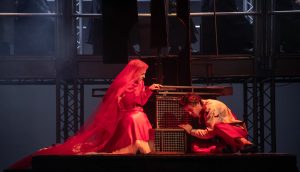
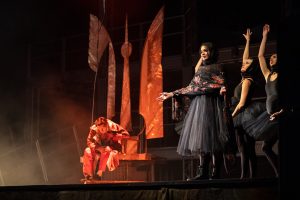
Germination of an idea
The idea initially originated with Ukrainian producer Oleksandra Saenko, who divides her time between Kharkiv and Vienna and organizes important cultural events in the Austrian capital aimed at promoting Ukraine. She is the founder of Ukrainian Cultural Festival UStream/Ukrainische Kulturtage (Austria).
Two years ago, Oleksandra organized a remarkable concert of Ukrainian symphonic music at the prestigious Viennese Concert Hall, which was attended by Ukrainian maestro Myroslav Skoryk (July 13, 1938 – June 1, 2020) and was highly acclaimed by the Austrian artistic community.
At about the same time, in collaboration with the Lysenko National Academic Opera and Ballet Theatre in Kharkiv, she brought up the idea of creating a joint cultural project that could become a bridge between Austria and Ukraine.
Thus began the story of the opera ‘Vyshyvany. King of Ukraine’, dedicated to the figure of Archduke Wilhelm von Habsburg-Lothringen, representative of the most important royal house in Europe, aka Vasyl Vyshyvany, a colonel of the Ukrainian Sich Riflemen (Sichovi Striltsi), a politician, diplomat, poet and dreamer.
During World War II, Vyshyvany was kidnapped by Soviet investigators, interrogated and tortured in Lukyanivka prison in Kyiv, where he died ill and alone. His burial place is unknown.
There is truly no better and more symbolic figure to initiate a Ukrainian dialogue with Austria.
The opera genre was chosen as an instrument for this dialogue, not a very popular genre per se, but a clear bow to European intellectual and political elites.
The project also focuses on destroying stereotype narratives about a distant, savage Ukraine, and building a new image of this eastern neighbour as a modern, ambitious and culturally bound country.
Finally, a distinct Ukrainian flavour was added through haunting melodies of authentic folk voices from Hutsul and Poltava regions.
A completely new structure had to be built for the Kharkiv Opera Theatre. It weighed five tons and cost over 2.5 million hryvnias. New costumes had to be designed and sewn; master classes were held for musicians and singers; courses on the conceptual foundations of the new opera genre were organized for the stage and artistic teams.
Feedback from the creative team
Oleksandra Saenko, producer
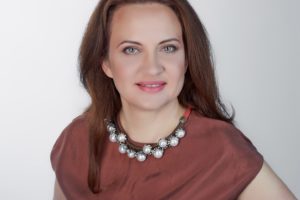
Creating a modern opera for a state theatre is something unheard of in Ukraine; it was a challenge and an experiment for everyone! Alla Zahaykevych’s electroacoustic music is difficult to perform, so the soloists, choir and musicians had to learn how to interpret this music. It’s a quantum leap for the opera company.
I was fascinated by Rostyslav Derzhypilsky’s complex metaphorical staging, together with Olya Semyoshkina’s contemporary choreography and Olesya Holovach’s scenography. The soloists had to master a new vocal technique and get used to the difficult images that combine issues from the time of Ukraine’s fight for freedom and problems that concern us today. It took a lot of effort.
But, experimentalism is in the spirit of the times. It has its demands and we must be ready to study new concepts and undertake new challenges. It’s an important feature of a modern nation.
Alla Zahaykevych, composer

The human voice is an intimate instrument. We perceive opera as something large and epic, but in reality opera can be something very intimate, functioning in whispers, personal space. In fact, the troubled figure of Vyshyvany also approaches the spectators in an intimate way.
I’m sure that Ukrainian opera has great potential for development despite the fact that the public generally sees opera as something scary, cold and very traditional.
We’re finally beginning to see more and more innovative ideas in Ukraine. Kharkiv Opera is now known for being the first to open many new staging experiments, laboratories, projects… As a composer, I’m very interested in this diverse space.
Ihor Tuluzov, project manager at the National Academic Opera and Ballet Theatre/Skhid Opera in Kharkiv
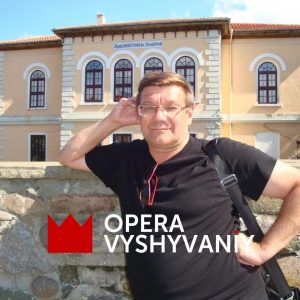
Alla Zahaykevych’s opera was a major challenge for the academic theatre genre. We were all very nervous and tense. But, we managed, and in the end everyone fell in love with this music.
For us, this is a major step forward. Now we know that we’re able to meet the challenges of interpreting new, modern music.
Serhiy Zhadan, writer, author of the opera libretto
I don’t like going to premieres of performances based on my texta, because I tend to worry more about the actors on stage. But, I’m extremely grateful to all the performers. I just want to go out and hug everyone. I was amazed at how the whole machine - the actors, musicians, stage crew – managed to work together so coherently.
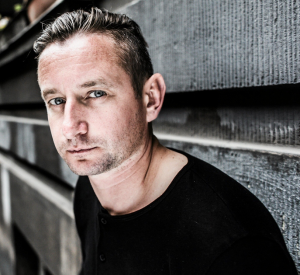
In his interview with Trafika Europe Radio, Zhadan underlines that Archduke Wilhelm von Habsburg-Lothringen, aka Vasyl Vyshyvany, spoke Ukrainian and wrote his poems in Ukrainian.
This was a conscious choice on Vyshyvany’s part, says Zhadan, a choice that was important 100 years ago and is still very important today. In this broader sense, Vasyl Vyshyvanyi’s choice of language is the determining factor in his poetic work. It is a post-colonial situation that is difficult to understand unless you find yourself in a similar context because the choice of identity, which includes language, is always an individual one.
Hot reviews from guests
Andriy Lyubka, writer
The premiere of ‘Vyshyvany. King of Ukraine’ was a great success and after it’s been polished up and refined, I’m sure it will become a hit in other major cities of Ukraine. Not to mention that I’m convinced the time will come when this opera will be applauded by a Viennese audience.
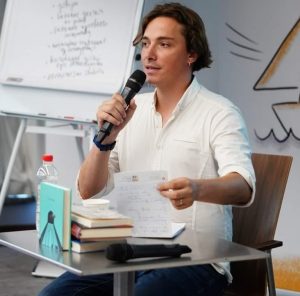
However, there are other interesting factors to consider, namely the impact of this opera. In fact, we can easily have imagined the premiere of ‘Vyshyvany. King of Ukraine’ in a major city of western Ukraine, like Lviv or Chernivtsi, where the Austro-Hungarian context is still relevant and very much alive.
On the other hand, it’s certainly unusual - and impressive - to attend the premiere of a “Austro-Ukrainian narrative” in Kharkiv, the city that became the first capital of Soviet Ukraine, against which Wilhelm von Hapsburg fought so hard. It’s a subtle game with symbolic and political contexts that makes culture deeply relevant.
In future, ‘Vyshyvany. The King of Ukraine’ will become an effective instrument that Ukraine’s cultural diplomacy can use abroad. Indeed, it has already become a means of cultural diplomacy within Ukraine, as it opens new doors, initiates an internal dialogue, and presents an innovative way of “bonding” the country together.
Because when the premiere of the opera about Archduke Wilhelm von Habsburg, who was destined to take the throne of Austrian-ruled Ukraine, takes place in Kharkiv, it demonstrates Eastern Ukraine’s symbolic step forward into a deeper understanding of another Ukrainian region, into the discourse of Central European history.
After the premiere, I can clearly state that it was a bold, spectacular, sophisticated and successful move.
Yaryna Tsymbal, literary critic and editor, researcher of literature of the 1920s
I decided to attend the premiere of ‘Vyshyvany. King of Ukraine’, but I admit that I wasn’t very sure about this entire project.
After all, the story of Archduke Wilhelm Habsburg is historical, heroic and patriotic. From everything I’ve seen on this topic, the authors haven’t been able to go beyond the ideological, whether it be communist or nationalist. But, I knew all about Alla Zahaykevych and Serhiy Zhadan and wondered how they’d approach this topic.
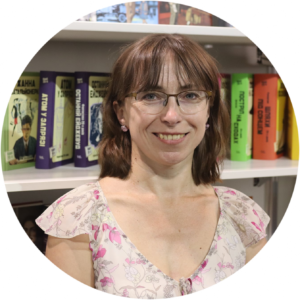
The curtain rose, the protagonists appeared and gradually, most gradually, my fears vanished. First, the libretto… Zhadan chose individual plots from Vyshyvany’s biography and wove them into a symbolic chain. His metaphorical poems not only reveal the image of a distant stranger and emperor, who for some reason fell in love with one of his colonized peoples, but they also draw parallels with our time.
Alla Zahaykevych’s music also narrates this metaphor through an interaction of symphonic and electronic music. I don’t think ‘Vyshyvany’ can be called an academic opera. Everything was new: new sounds, new lyrics, new staging. Artists who are not static performers, but participants involved in the action. The choreography, scenography, mass stage movements - all was more typical of a modern musical, and yet it was an opera, a modern avant-garde opera.
Apparently, everyone in the theatre felt that we were witnessing an extraordinary event in our cultural history.
Yes, there must always be someone and something that moves the masses. Producer Oleksandra Saenko assembled an incredible team that created an opera, an masterpiece that moved everyone. ‘Vyshyvany. King of Ukraine’ was truly the cultural event of the year, and it happened in Kharkiv. There should be more of such events. ‘Vyshyvany’ may be just the beginning!
Tetiana Vlasova, creative producer, poet
I came to Kharkiv for the premiere as it was a must see event in Ukrainian cultural life, so I couldn’t miss it.

I’m always guided by emotions, and I can say that everything worked 100%. Almost immediately I felt that I was being carried away by some incomprehensible wave, that I was catching every word, every note and every movement. It’s not just a story about Vasyl Vyshyvany; it’s more about a man caught in a cyclical historical process. If we project what happened on stage into today’s reality, it can even become a little frightening!
Despite the fact that so many different individuals worked on this opera, everything came together in the end - the libretto, music, staging didn’t interfere with each other; on the contrary, they intertwined organically. That’s why it was so magical, so emotional!
I believe modern Ukrainian cultural projects should be just that - bold and experimental, somewhat hyperbolized, and in some way - restrained. In order to interest the Ukrainian audience, it’s not enough to tell an interesting story about certain historical figures. They need to be modernized, shown from various interesting angles. The authors and composers need to be creative and not afraid to take bold, new steps. In this case, ‘Vyshyvany’ was a complete success!
Volodymyr Sheiko, General Director of the Ukrainian Institute
In my opinion, ‘Vyshyvany. King of Ukraine’ is a multi-component project, an important precedent, phenomenon and object for discussion.

First, the choice of the figure of Vasyl Vyshyvany, which immediately takes us from the usual Ukrainian village repertoire to the whirlpool of the Ukrainian revolution and plunges us into a web of intricate historical ties with neighbouring countries. It creates a modern myth as a way of constructing identity.
Second, modern artistic language, a conscious rejection of the classical opera genre. The collaboration of a star team: Alla Zahaykevych, Serhiy Zhadan, Rostyslav Derzhypilsky. A desire to impress, to be remembered, to be different. Attention to detail. With the patronage of Vsevolod Kozhemyaka and the Kharkiv business community. Inspired by producer Oleksandra Saenko.
It was difficult for everyone: performers who had to master new vocal techniques; an orchestra that had to get used to playing modern music; a composer who demanded precise and nuanced sounds; a director who staged an opera for the first time, and even outside his own theatre; the Kharkiv Opera House, which took up this challenge; the producers who put it all together and launched this huge machine, and, finally, the audience, which had to understand and assimilate such difficult material.
But, thanks to ‘Vyshyvany’ and other extraordinary projects that are born not because of, but despite everything, we learn to create, listen, collaborate, communicate, implement projects, think about and learn new things.

